But we have not spoken of pleasure as a whole, pleasure apart from entertainment, play and humor. The satisfaction of any physical desire is pleasant, so that to eat and drink and have sexual relations become great pleasure trends. There are some who live only for these pleasures, ranging from glutton to epicure, from the brutally passionate to the sexual connoisseur. Others whose appetites are hearty subordinate them to the main business of their lives, achievement in some form. There is a whole range of taste in pleasures of this kind that I do not even attempt to analyze at this point, even if it were possible for me to analyze it.
Pleasure in dress, in ceremonials, in all the ornamentation of life, forms part of the artistic impulses. The love of music is too lofty to be classed with the other pleasures. This is true of only a few people. For most of us music is an entertainment and is usually poorly endured if it constitutes the total entertainment. As part of the theater, of the movie, of dancing, it is "appreciated" by everybody. To most it stirs the emotions so deeply that its pleasure vanishes in fatigue if too long endured. The capacity to enjoy music, especially the capacity to express it, is one of the great variables of life. It is true that the poseurs in music and the arts generally seek superiority by pretending to a knowledge, interest and pleasure they do not really have, just as there are some who really try to enjoy what they feel they should enjoy. Nowhere is there quite so much pretense and humbug as in the field of the artistic tastes.
Nowhere is the arbitrariness of taste so evident, and nowhere is the "expert" so likely to be a pretender. I say this in full recognition of the fact that science and religion have their modes and pretenses as well as art.
The "progress" of man is marked as much as anything by a change in "taste," change in what is considered mannerly, beautiful and pleasant. This progress is called refinement, although this term is also used in relation to ethics. Refinement in cooking leads to the art of the chef. Refinement in dress becomes developed into an intricate, ever-changing relation of clothes and age, sex, time of day, situation, etc., so that it is unrefined to wear clothes of certain texture and hues and refined to wear others. Refinement in manner regulates the tone of voice, the violence of gesticulation, the exhibition of emotions and the type of subjects discussed, as well as controlling a dozen and one other matters, from the way one enters a room to the way one leaves it. The savage is unrefined, say we, though he has his own standards of refinement. An American is a boor if he tucks his napkin in at the neck and uses bread to sop up the gravy on his plate, whereas Italians find it perfectly proper to do these things and find the bustle of the American life totally unrefined.
That refinement and developed taste are matters of convention and entirely relative is not a new thesis; it is an old accepted truth. What I wish to point out is this, that every development in refinement adds some new pleasure to the world but subtracts some old ones. He who develops his musical tastes from ragtime to the classics finds joys he knew not of, but is offended and disgusted whenever he visits friends, attends a movie or a theater. When people ate with their fingers there was little to be disgusted at in eating; when people need spotless linen and eight or ten forks, knives, and spoons for a meal, a single disarrangement, a spot on the linen, is intolerable. The higher one builds one's needs and tastes, the more opportunities for disgust, disappointment and discontent.
Most of the people of the world have never understood this. To the majority, acquisition, the multiplication of needs, desires and tastes constitute progress and seem to be the roads to happiness. Get rich, have horses, autos, beautiful things in the house, servants, go where you please and when you please,--this is happiness. The rich man knows it is not, and so does the wise man. Desires grow with each acquisition, the capacity for satisfaction diminishes with every gratification, novelty disappears and with the growth of taste little disharmonies offend deeply.
Some men have reacted in this way against gratification and satisfaction, against the building up of needs and tastes, and in every age we hear of the "simple life," the happy, contented life, where needs are few and things are "natural." The ascetic ideal of renunciation is the dominant note in Buddhism and Christianity; fly from the pleasures of this world, give up and renounce, for all is vanity and folly. To every struggler this seems true when the battle is hardest, when achievement seems futile and empty, and when he whispers to himself, "What is it all about, anyway?" To stop struggling, to desire only the plainest food, the plainest clothes, to live without the needless multiplication of refinements, to work at something essential for daily bread, to stop competing with one's neighbor in clothes, houses, ornaments, tastes,--it seems so pleasant and restful. But the competition gets keener, the struggle harder, tastes multiply, yesterday's luxury is to-day's need--to what end?
Will mankind ever accept a modified asceticism as its goal? I think it will be forced to, but it may be that the wish is father to the thought. Sometimes it seems as if the real crucifixion for every one of us is in our contending desires and tastes, in the artificial competing standards that are mislabeled refinement. To be finicky is to court anhedonia, and the joy of life is in robust tastes not easily offended and easily gratified.
Perhaps this is irrelevant in a chapter on play and recreation, but it is easily seen that much of play is a revolt against refinement and taste, just as much as humor is directed against them. In play we allow ourselves to shout, laugh aloud and to be unrefined; we welcome dirt and disorder; we forget clothes and manners; we are "natural," i. e., unrefined. The higher we build our tastes the more we need play. If such a thing as a "state of nature" could be reached, play and recreation in the adult sense would hardly more than exist.














